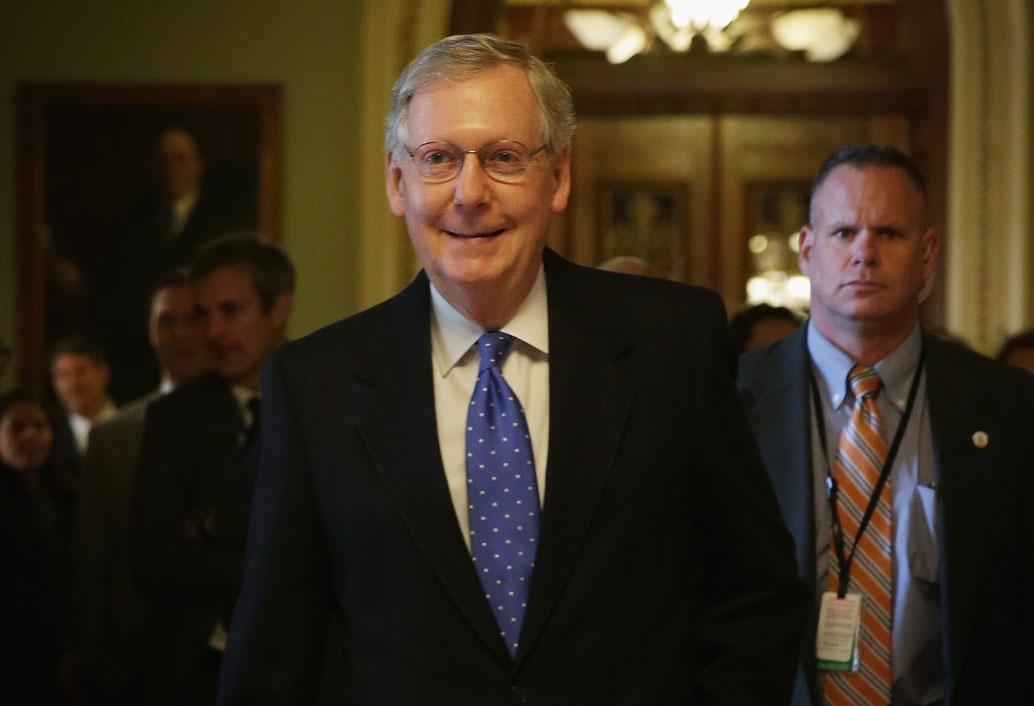WASHINGTON—Tea party groups and other Republican rebels that thrive on bedeviling the party establishment are minding their political manners in the run-up to Election Day, while Democrats are struggling.
That combination doesn’t guarantee a Republican takeover of the Senate or big GOP gains in the House in elections midway through President Barack Obama’s second term. But it does augur poorly for Democrats by the time the votes are tallied Tuesday night.
“There is just too much at stake not to support Pat Roberts,” Jenny Beth Martin, head of the Tea Party Patriots Citizens Fund, said recently in announcing an endorsement of the veteran Kansas senator.
That’s not how the group saw it earlier in the year, when it scorned the 78-year-old incumbent as a career politician and sought to defeat him in a primary. “Pat Roberts wants special treatment,” said a video posted to the organization’s website back then. It accused him of “taking a special exemption from Obamacare.”
The turnaround means the group is now all-in for the GOP establishment, which treated it and others like it as a mortal threat in the primary season and wound up handing them defeat after defeat in Kentucky, Mississippi, Kansas and elsewhere.
The establishment’s objective was to prevent a repeat of the 2010 and 2012 elections, when Republicans lost winnable races — and a chance at a Senate majority — because unelectable insurgents made it through the primaries in a handful of states.
“The last two cycles we nominated some people who were not the best candidates for the general election,” Sen. Mitch McConnell of Kentucky, the party’s leader said in August. “In 2014, I’m hard-pressed to think of a single state where we don’t have the best nominee possible.”
The cease-fire is unlikely to last much after Election Day, as suggested by a dustup in recent days between some conservatives who said they detected a sign of weakness in McConnell’s vow to try and repeal the health care law.
But to party leaders, Nov. 4 is what matters most as Republicans pursue the six seats needed to win control of the Senate.
The mood is less forgiving on the other side of the aisle, although the grumbling is muted for now. Senate Democratic aides and White House officials have been sniping at one another for weeks, going back to a dispute over President Barack Obama’s plans to issue an order ending deportations for millions of immigrants in the country illegally.
House Democrats also are unhappy over a steep decline in support from environmental and other groups, who focused more on Senate races this year.
History alone predicts a drubbing for any president’s party midway through his second term. Since 1934, the average is a loss of about 30 seats in the House and six in the Senate. Barring a blowout that no prognosticator is predicting, Republicans are unlikely to pad their House majority by that much. In fact a gain of 13 would leave them with more seats than at any time since 1946.
Capturing six Senate seats is the bare minimum for success for Republicans. A gain of only five would leave them in a 50-50 tie that would keep control with the Democrats by virtue of Vice President Joseph Biden’s tie-breaking vote.
Which is why the customarily quarrelsome Republicans seem to have decided that unity, or at least the appearance of it, is the best policy.
Sen. Rand Paul of Kentucky, hoping to become the first tea party-backed president, has campaigned in more than a half-dozen states this year for fellow Republicans, and has paid for television commercials in four.
Roberts is among the beneficiaries. “We’ve been counting on you, Kansas. You’re a Republican state, for goodness sakes,” Paul pleaded with voters at one point.
Sen. Ted Cruz of Texas, another tea party favorite and potential presidential contender, also has campaigned for Roberts. And he arranged to spend the weekend on an Alaska trip designed to help Republican Dan Sullivan defeat Democratic Sen. Mark Begich. He also hasn’t stirred any Republican-on-Republican controversy recently, a little more than a year after he showed the way to a partial federal shutdown rather than allow funding for the health care law.
The Tea Party Express climbed aboard the Roberts re-election campaign, too, and Sarah Palin issued an endorsement.
Club for Growth is also on board in Kansas and in Kentucky. The group endorsed only four Republican Senate candidates this year, and neither Roberts nor McConnell was among them. Now they are featured in the organization’s donor guides, listed not as priority races, but as Republican seats in jeopardy.
“McConnell has shown that his primary allegiance is to the Republican Party, and not to championing pro-growth, limited-government principles,” it says of the party leader.
Not an endorsement, just a call for Republican unity.
From The Associated Press



